Publications
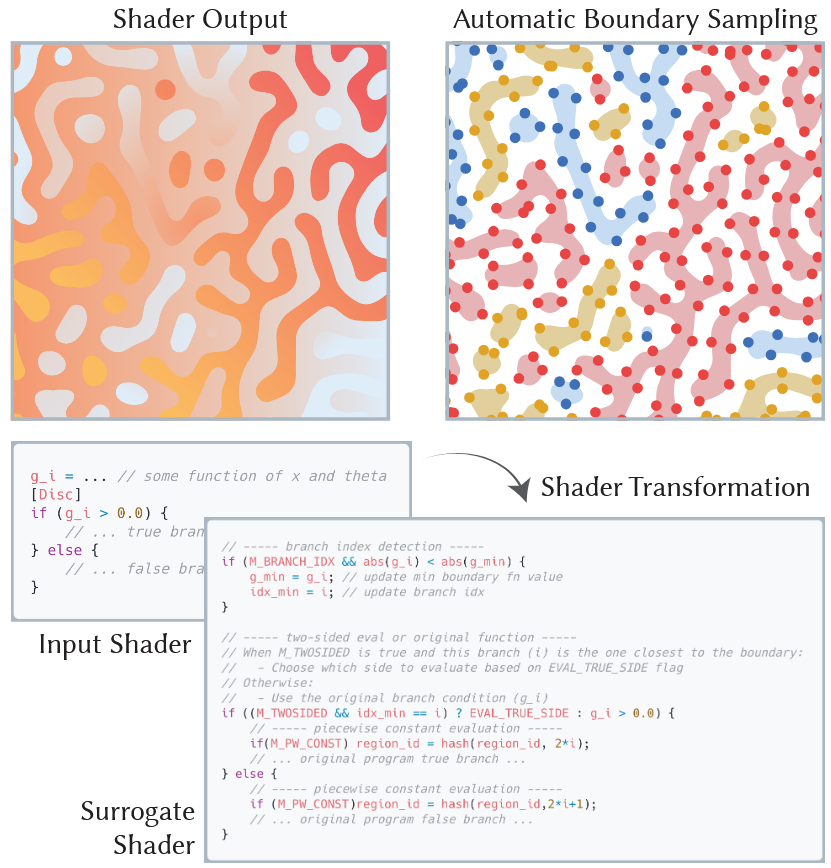
Automatic Sampling for Discontinuities in Differentiable Shaders
Yash Belhe, Ishit Mehta, Wesley Chang, Iliyan Georgiev, Michaël Gharbi, Ravi Ramamoorthi, and Tzu-Mao Li
ACM Transactions on Graphics (Proceedings of SIGGRAPH Asia 2025)
Best Paper Award
Many tasks in graphics and vision require computing derivatives of integrals of discontinuous functions, which have previously either required specialized routines or suffered from high variance. We introduce a program transform and boundary sampling technique that computes accurate derivatives for arbitrary shader programs, enabling a range of applications such as painterly rendering, CSG, rasterization, discontinuous textures, and more.
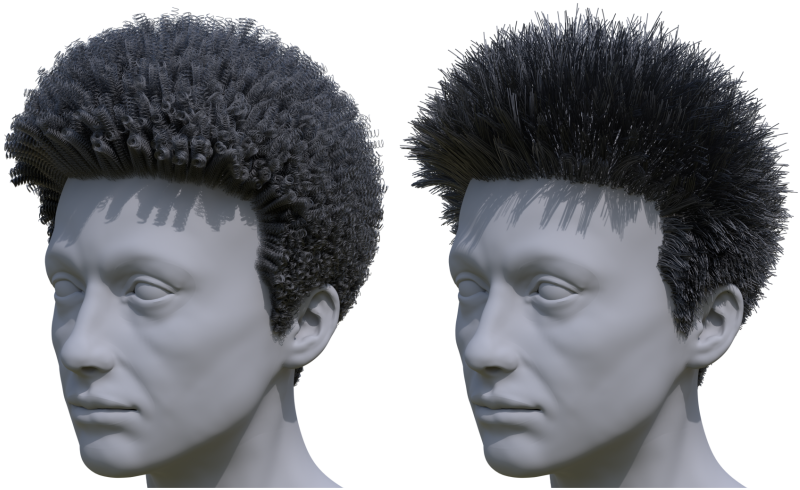
Transforming Unstructured Hair Strands into Procedural Hair Grooms
Wesley Chang, Andrew L. Russell, Stephane Grabli, Matt Jen-Yuan Chiang, Christophe Hery, Doug Roble, Ravi Ramamoorthi, Tzu-Mao Li, and Olivier Maury
ACM Transactions on Graphics (Proceedings of SIGGRAPH 2025)
Recent methods have been developed to reconstruct 3D hair strand geometry from images. We introduce an inverse hair grooming pipeline to transform these unstructured hair strands into procedural hair grooms controlled by a small set of guide strands and artist-friendly grooming operators, enabling easy editing of hair shape and style.
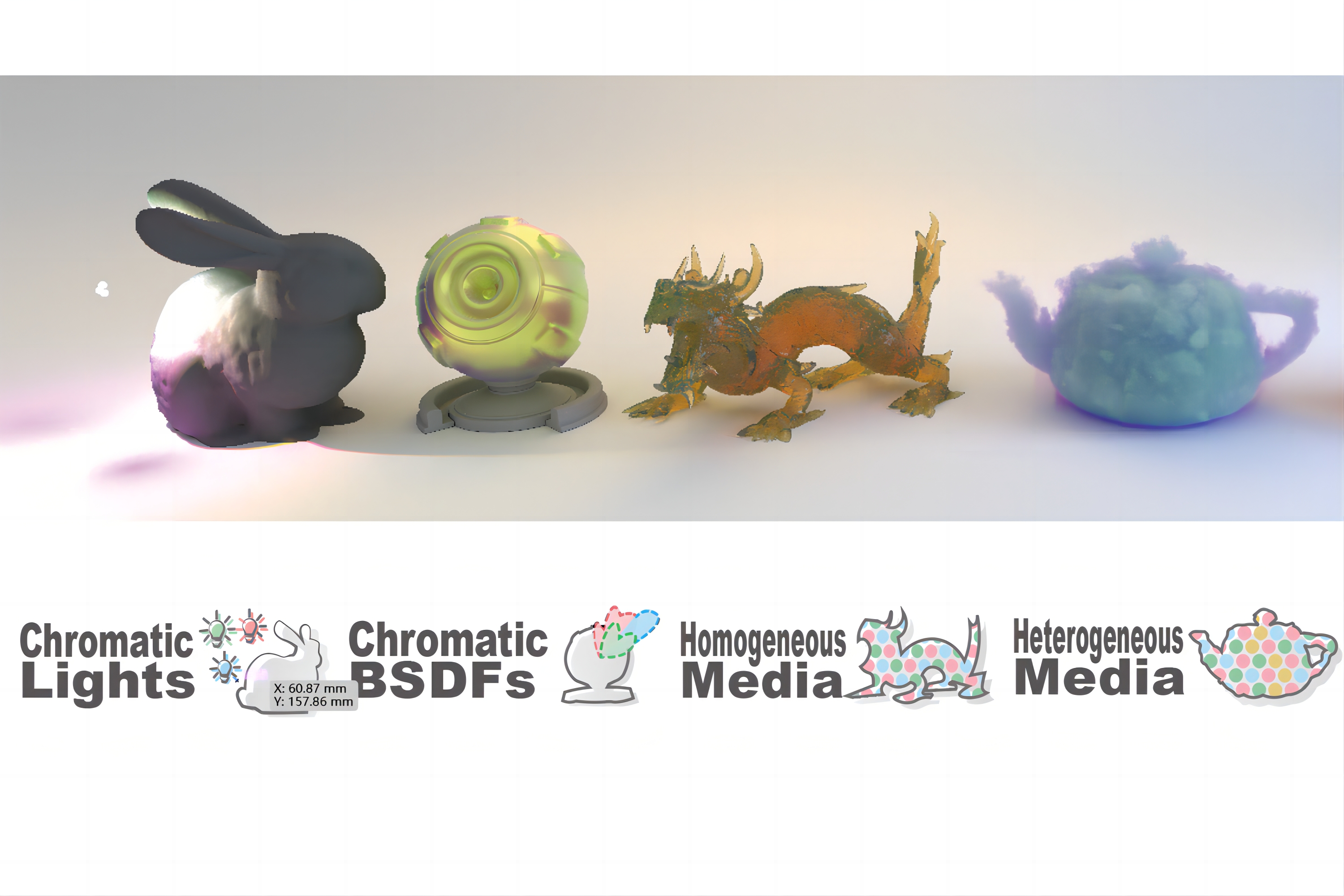
Vector-Valued Monte Carlo Integration Using Ratio Control Variates
Haolin Lu, Delio Vicini, Wesley Chang, and Tzu-Mao Li
ACM Transactions on Graphics (Proceedings of SIGGRAPH 2025)
Best Paper Award
Variance reduction techniques for Monte Carlo integration are typically designed for scalar-valued integrands, even though many rendering and inverse rendering tasks actually involve vector-valued integrands. We show that ratio control variates, compared to conventional difference control variates, can significantly reduce the error of vector-valued integration with minimal overhead.
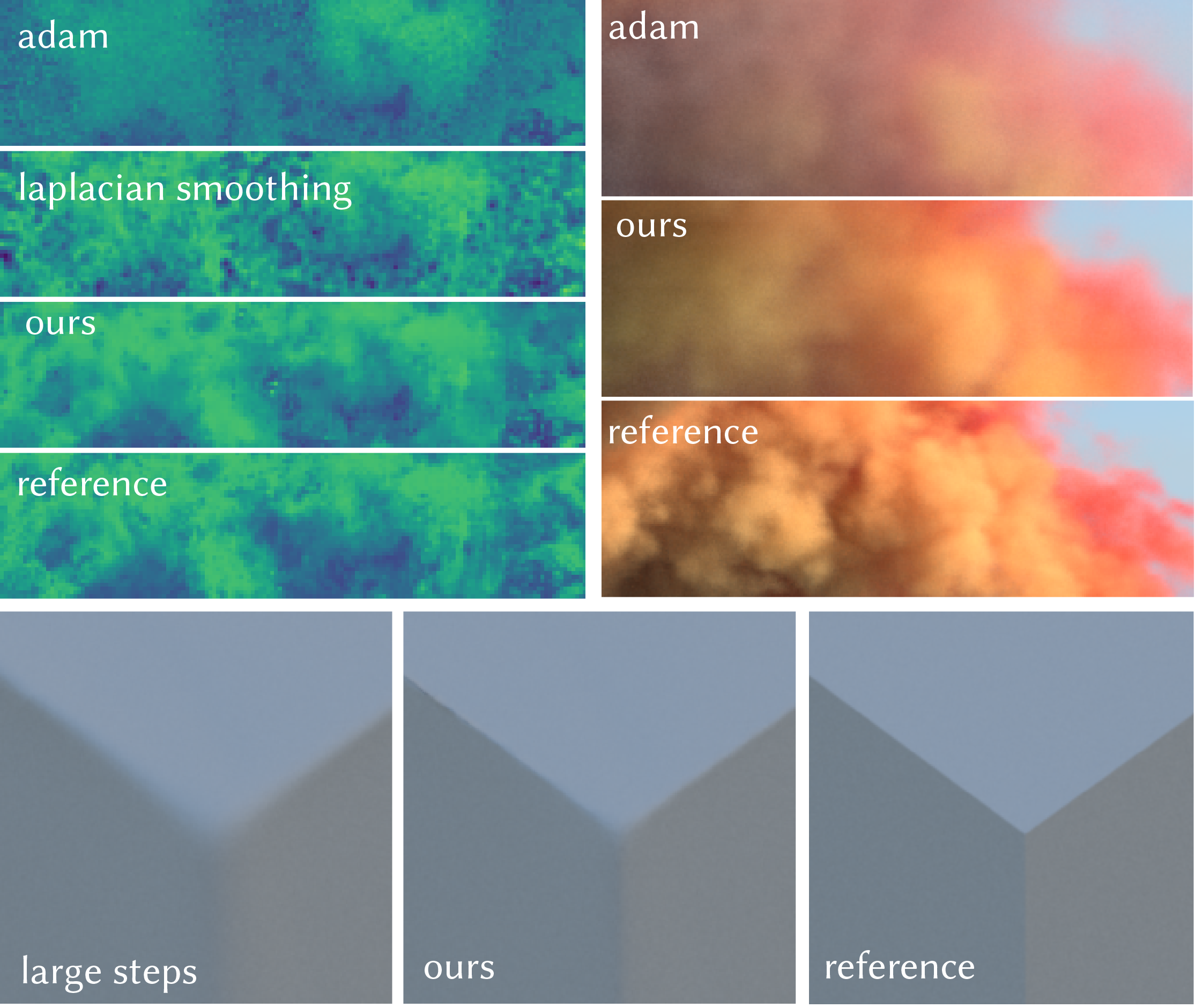
Spatiotemporal Bilateral Gradient Filtering for Inverse Rendering
Wesley Chang*, Xuanda Yang*, Yash Belhe*, Ravi Ramamoorthi, and Tzu-Mao Li
*Denotes equal contribution
SIGGRAPH Asia 2024 (Conference Track)
We introduce a spatiotemporal optimizer for inverse rendering which combines the temporal filtering of Adam with spatial cross-bilateral filtering to enable higher quality reconstructions in texture, volume, and geometry recovery.
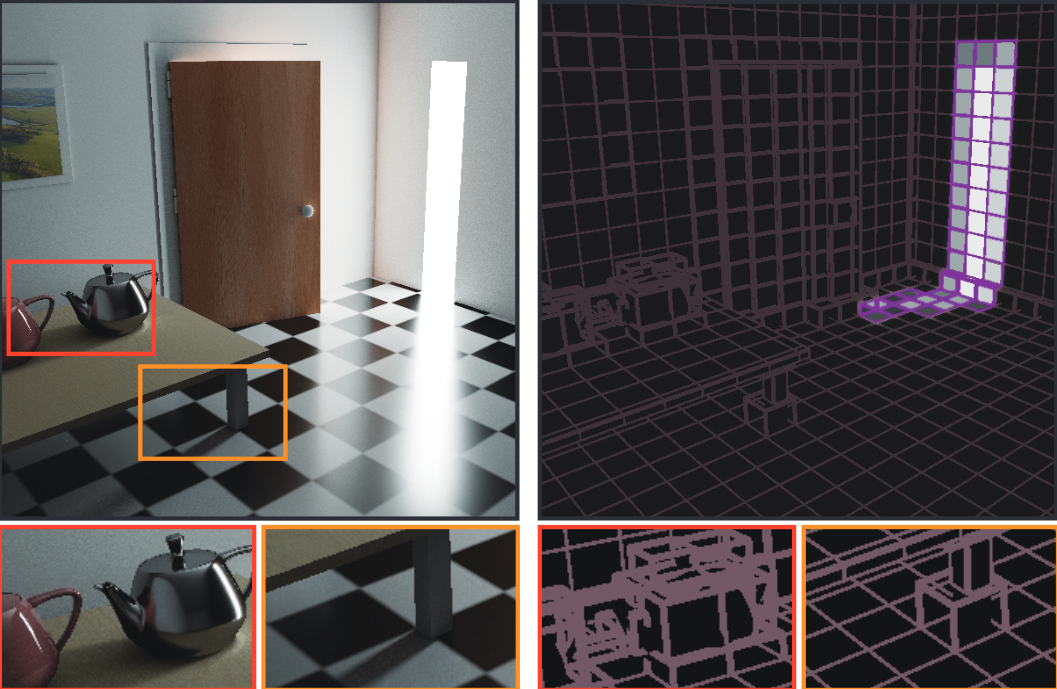
Real-Time Path Guiding Using Bounding Voxel Sampling
Haolin Lu, Wesley Chang, Trevor Hedstrom, and Tzu-Mao Li
ACM Transactions on Graphics (Proceedings of SIGGRAPH 2024)
We propose a real-time path guiding method, Voxel Path Guiding (VXPG), that significantly improves fitting efficiency under limited sampling budget. We show that our method can outperform other real-time path guiding and virtual point light methods, particularly in handling complex dynamic scenes.
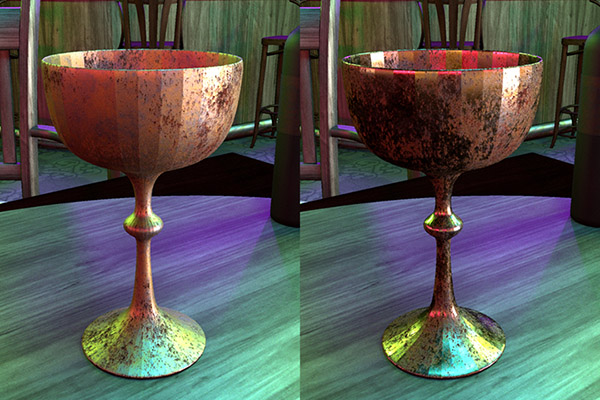
Parameter-space ReSTIR for Differentiable and Inverse Rendering
Wesley Chang, Venkataram Sivaram, Derek Nowrouzezahrai, Toshiya Hachisuka, Ravi Ramamoorthi, and Tzu-Mao Li
SIGGRAPH North America 2023 (Conference Track)
Physically-based inverse rendering algorithms that utilize differentiable rendering typically use gradient descent to optimize for scene parameters such as materials and lighting. We observe that the scene often changes slowly from frame to frame during optimization, similar to animation, and therefore adapt temporal reuse from ReSTIR to reuse samples across gradient iterations and accelerate inverse rendering.